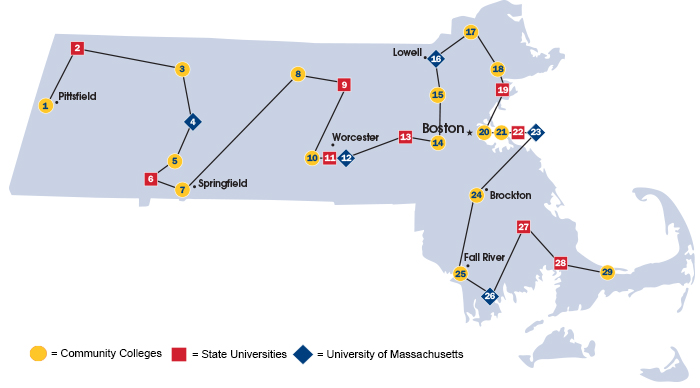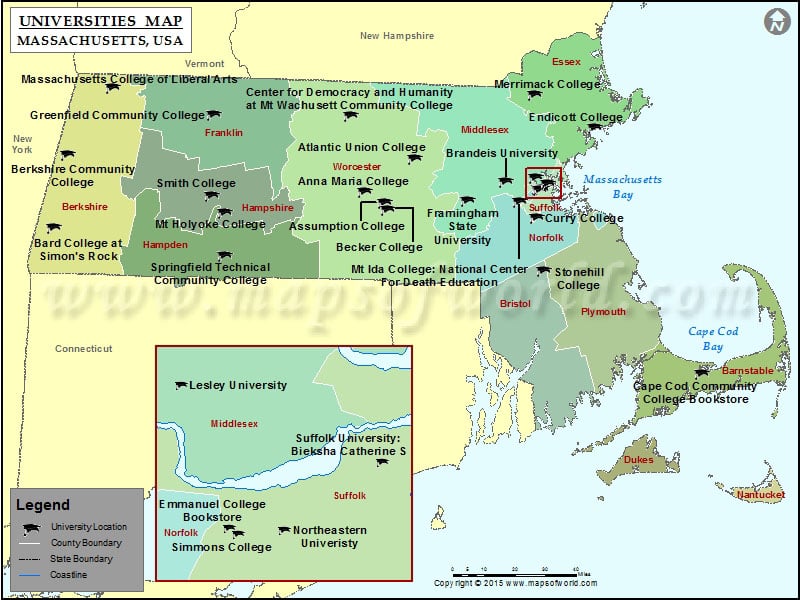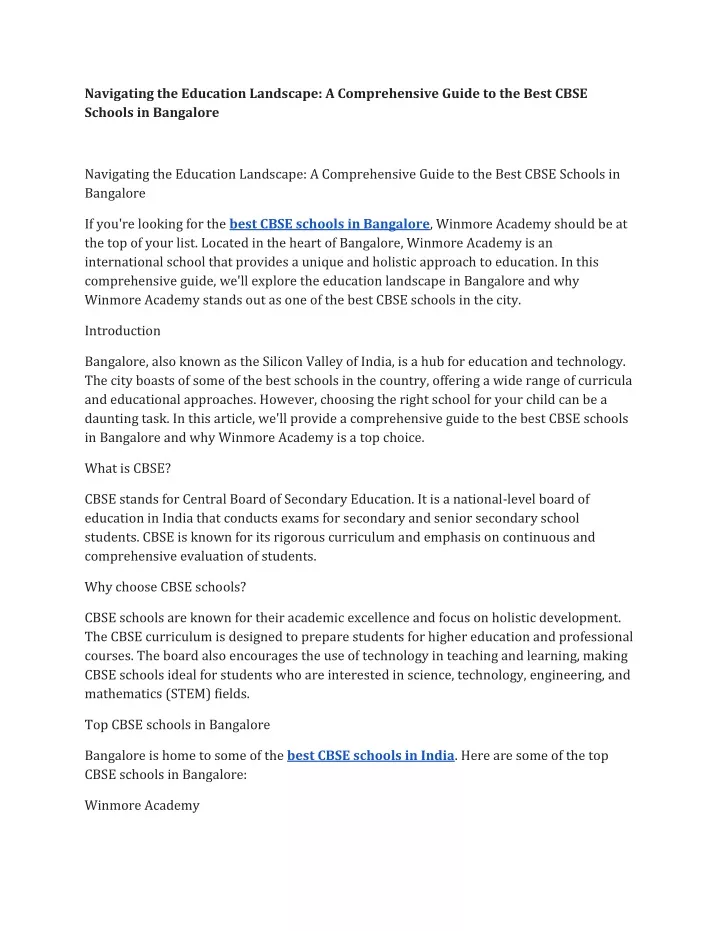Navigating The Landscape Of Higher Education: A Comprehensive Guide To Colleges In Massachusetts
Navigating the Landscape of Higher Education: A Comprehensive Guide to Colleges in Massachusetts
Related Articles: Navigating the Landscape of Higher Education: A Comprehensive Guide to Colleges in Massachusetts
Introduction
With great pleasure, we will explore the intriguing topic related to Navigating the Landscape of Higher Education: A Comprehensive Guide to Colleges in Massachusetts. Let’s weave interesting information and offer fresh perspectives to the readers.
Table of Content
Navigating the Landscape of Higher Education: A Comprehensive Guide to Colleges in Massachusetts

Massachusetts, renowned for its rich history, cultural vibrancy, and intellectual legacy, is also home to a diverse and impressive network of higher education institutions. From prestigious Ivy League schools to specialized technical colleges, the state offers a wide array of educational opportunities catering to various academic pursuits and aspirations. Understanding the geographical distribution of these institutions is crucial for prospective students and their families, as location can play a significant role in their overall educational experience.
A Visual Representation of Educational Opportunities
A map of colleges in Massachusetts serves as a valuable tool for visualizing the state’s educational landscape. It provides a clear and concise representation of the geographical distribution of universities, colleges, and technical schools across the Commonwealth. This visual aid allows individuals to:
- Identify institutions in specific regions: Whether seeking a college near a bustling city or a tranquil rural setting, the map helps pinpoint potential choices based on desired proximity to urban centers, natural environments, or specific communities.
- Compare institutions based on location: The map facilitates comparison of institutions located within a chosen region, enabling individuals to assess factors like distance, transportation options, and access to local amenities.
- Explore diverse educational options: By visually presenting the variety of institutions across the state, the map encourages exploration of different types of colleges, from liberal arts colleges to research universities, and specialized vocational schools.
Beyond Geography: Understanding the Diverse Educational Landscape
While the map provides a visual overview of the state’s higher education institutions, a deeper understanding requires examining the nuances of each institution’s offerings and characteristics. Massachusetts boasts a rich tapestry of colleges, each with its unique strengths, programs, and campus culture:
- Public Universities: The state is home to a robust network of public universities, including the University of Massachusetts system, which comprises five campuses across the state. These institutions offer affordable tuition and a wide range of academic programs, catering to a diverse student population.
- Private Universities: Massachusetts is renowned for its private universities, including renowned institutions like Harvard University, MIT, and Tufts University. These institutions are known for their rigorous academic programs, world-class research facilities, and strong alumni networks.
- Liberal Arts Colleges: The state is home to numerous liberal arts colleges, characterized by their focus on undergraduate education and a strong emphasis on humanities and social sciences. These institutions often offer smaller class sizes, personalized attention, and a strong emphasis on student engagement.
- Specialized Technical Colleges: Massachusetts also boasts a network of technical colleges, offering specialized training in fields like engineering, healthcare, and technology. These institutions provide practical skills and industry-specific knowledge, preparing graduates for successful careers in high-demand fields.
A Comprehensive Guide to Exploring Educational Options
Navigating the diverse landscape of colleges in Massachusetts requires a comprehensive approach. Here are some key considerations:
- Academic Interests: Define your academic interests and research institutions offering programs that align with your aspirations. Consider factors like program reputation, faculty expertise, and available research opportunities.
- Campus Culture: Explore the campus culture of each institution, considering factors like student body demographics, social activities, and extracurricular opportunities. Visit campuses, attend events, and speak with current students to gain a firsthand understanding of the environment.
- Financial Considerations: Assess the cost of attendance, including tuition, fees, and living expenses. Explore financial aid options, scholarships, and work-study programs to minimize the financial burden of higher education.
- Location and Lifestyle: Consider your preferred location and lifestyle. Do you envision yourself in a bustling city, a peaceful suburb, or a rural setting? Evaluate the proximity to amenities, transportation options, and cultural attractions.
FAQs about Colleges in Massachusetts
Q: What are the most prestigious universities in Massachusetts?
A: Massachusetts is home to several prestigious universities, including Harvard University, MIT, and Tufts University. These institutions are consistently ranked among the top universities in the world for their academic rigor, research excellence, and alumni success.
Q: What are the best colleges for specific academic fields?
A: Different institutions excel in specific fields. For instance, MIT is renowned for its engineering and science programs, while Harvard University boasts a strong reputation in the humanities and social sciences. Research specific programs and departments to find the best fit for your academic interests.
Q: How can I find a college that aligns with my financial situation?
A: Explore financial aid options, scholarships, and work-study programs offered by each institution. Utilize online resources and consult with financial aid advisors to develop a personalized financial plan.
Q: What are the best colleges for students seeking a specific type of campus culture?
A: Some institutions offer a vibrant social scene with numerous extracurricular activities, while others prioritize a more academic and focused environment. Visit campuses, talk to students, and attend events to gain a sense of each institution’s unique culture.
Tips for Navigating the College Search Process
- Start early: Begin researching colleges early in your high school career to allow ample time for exploring options and making informed decisions.
- Utilize online resources: Explore online databases and college search engines to gather information about institutions, academic programs, and financial aid options.
- Attend college fairs: Participate in college fairs to meet representatives from various institutions and learn about their offerings.
- Visit campuses: Schedule campus tours to experience the atmosphere firsthand, meet students, and ask questions.
- Seek guidance from mentors: Talk to teachers, counselors, and family members for advice and support throughout the college search process.
Conclusion: Embracing the Opportunities of Higher Education in Massachusetts
Massachusetts offers a diverse and enriching landscape of higher education institutions. By understanding the geographical distribution of colleges and exploring the unique characteristics of each institution, individuals can navigate the college search process effectively and identify the best fit for their academic aspirations and personal goals. The state’s commitment to academic excellence, coupled with its vibrant cultural scene and diverse communities, provides a unique and enriching environment for personal and professional growth.








Closure
Thus, we hope this article has provided valuable insights into Navigating the Landscape of Higher Education: A Comprehensive Guide to Colleges in Massachusetts. We appreciate your attention to our article. See you in our next article!